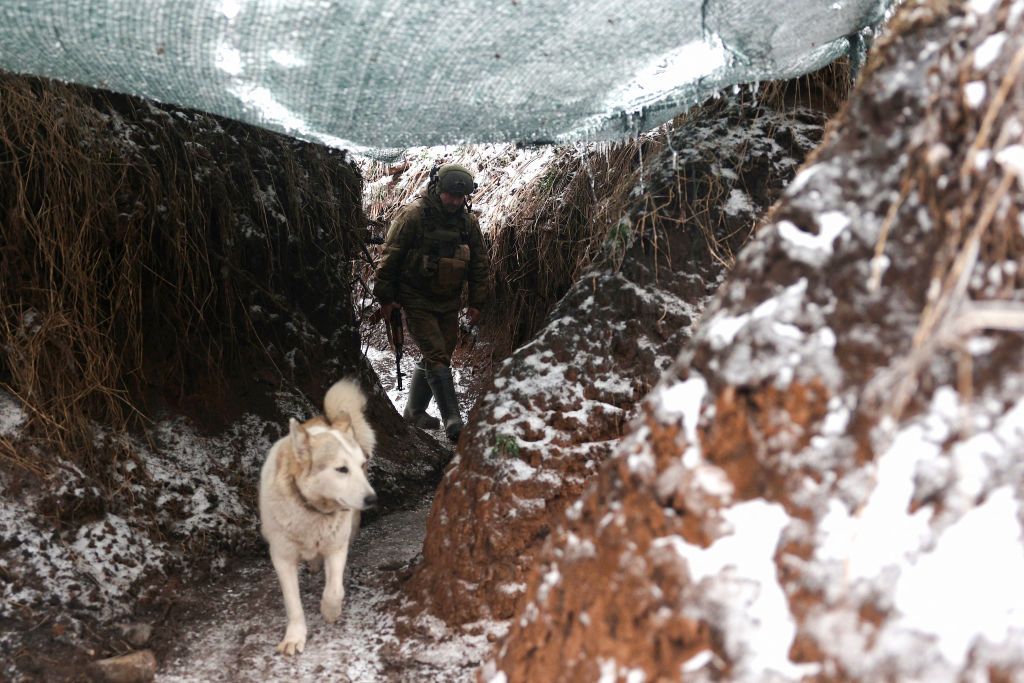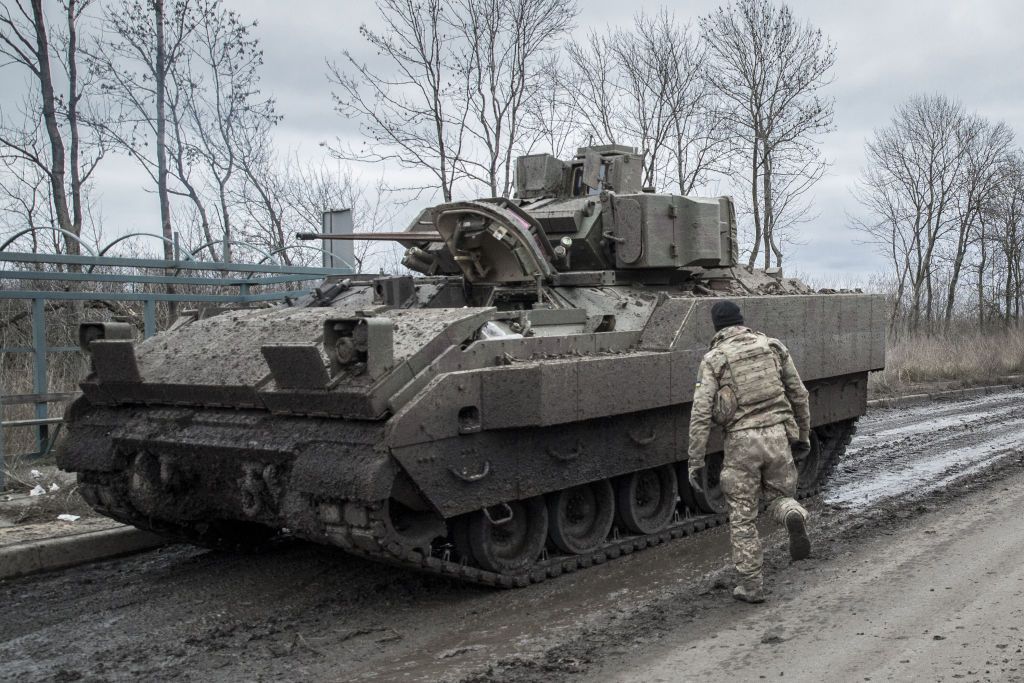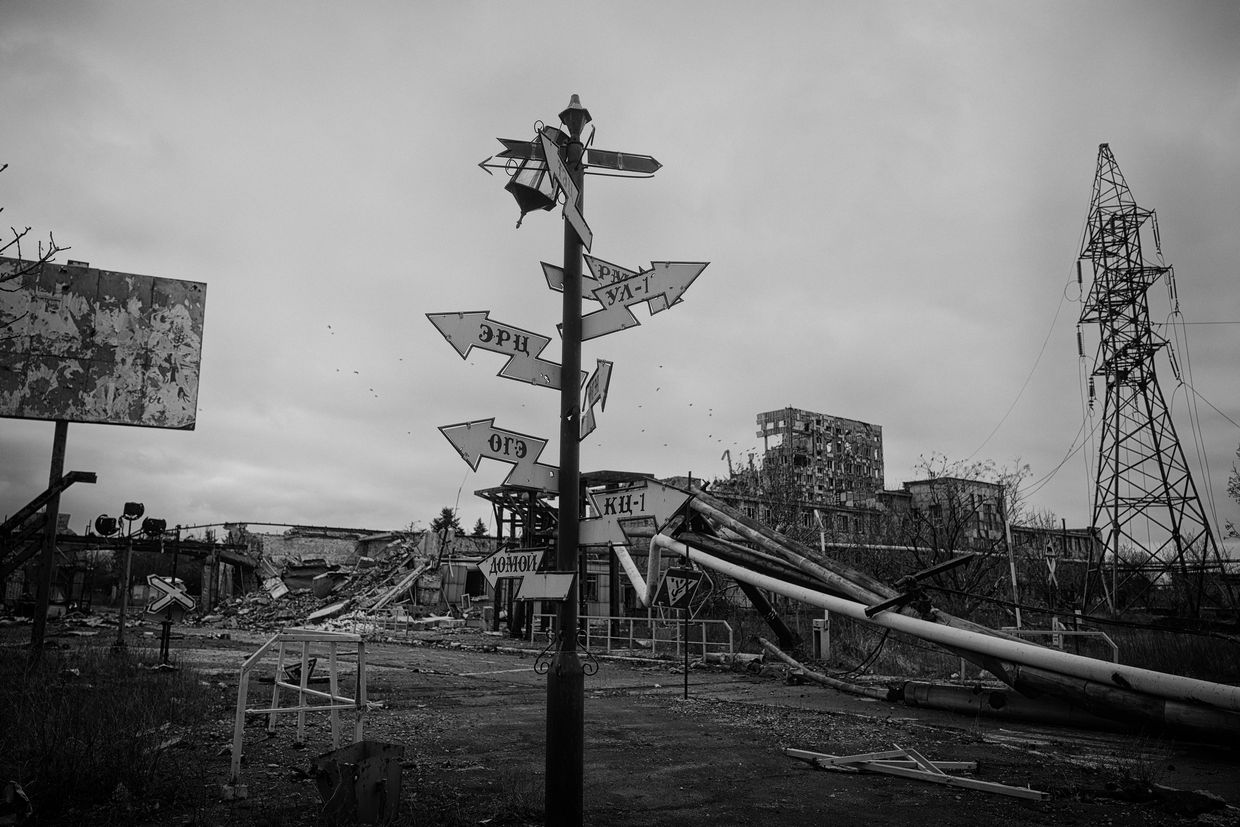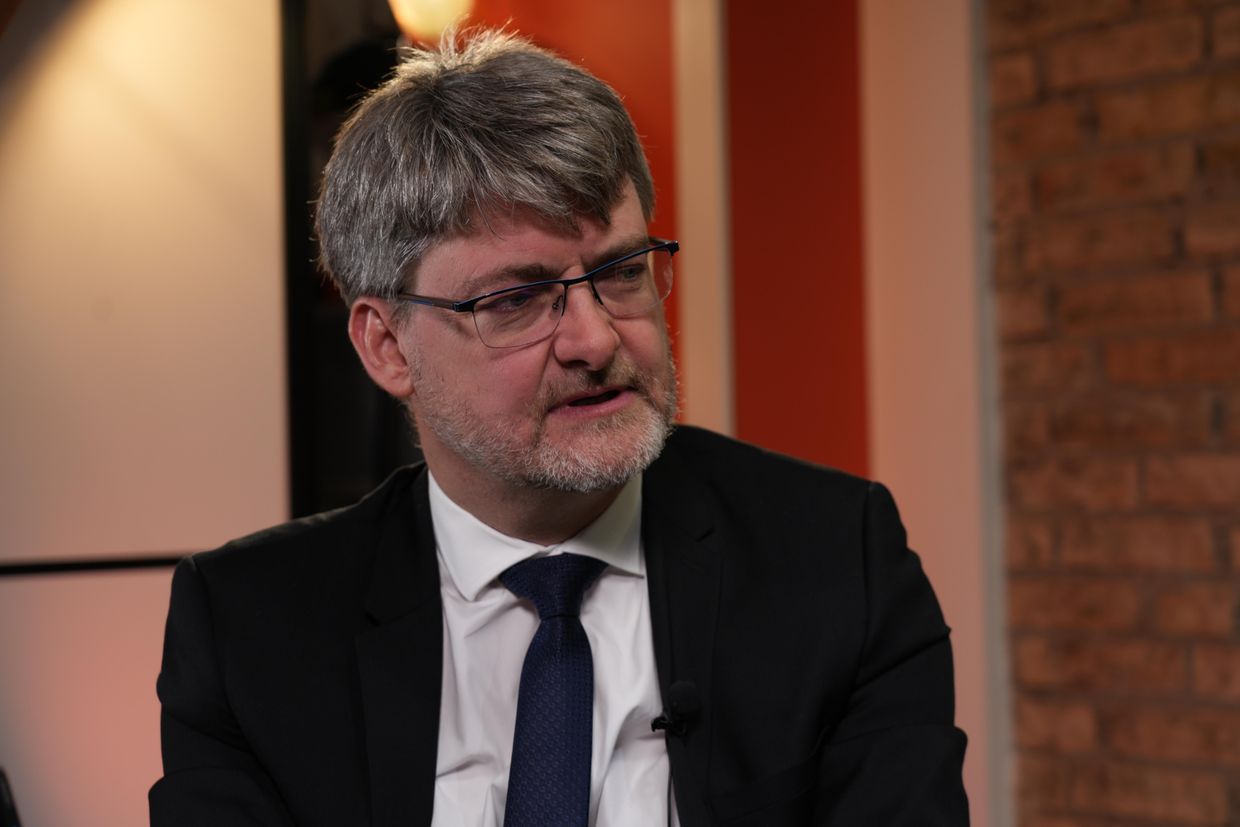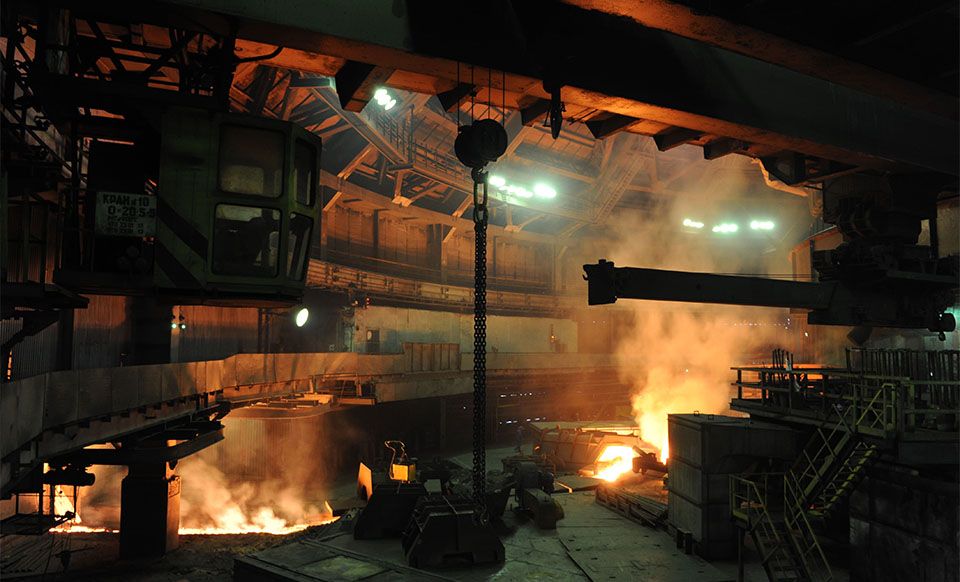Ukraine war latest: Military says Russia committing more reserves in attempt to capture Kupiansk

Key updates on Dec. 16-17:
- Military: Russia committing more reserves in attempt to capture Kupiansk
- Military Intelligence confirms incursion into Russia’s Belgorod Oblast
- Defense minister urges local authorities to contribute to mobilization
- Media: Austria backs EU sanctions package after Raiffeisen suspended from war sponsor list
- Zelensky: Ukraine downs 104 of 112 Shahed drones launched by Russia this week
- Lithuania hands over munitions to Ukraine in latest aid delivery
- Telegraph: London mayor refused Klitschko's request to send scrap cars to Ukraine
Russia is ramping up efforts to capture Kupiansk in Kharkiv Oblast, moving reserves of assault battalions to the area to compensate for heavy losses, Volodymyr Fito, the head of the Army's public relations service, said on air on Dec. 16.
Ground Forces Commander Oleksandr Syrskyi reported on Dec. 11 that Russian forces are trying to capture the village of Synkivka in Kharkiv Oblast, hoping to pave the way for the blockade of nearby Kupiansk.
Liberated from Russian occupation in the September 2022 Ukrainian counteroffensive, Kupiansk has been a key target for renewed Russian offensives, as it serves as a key logistics hub for a potential push further south or west.
According to Fito, Russia is utilizing significant amounts of equipment and personnel for its offensive on Kupiansk, which was previously occupied by Russian forces from late February 2022 to Sept. 10, 2022.
The "equipment is more protected" than the Russian soldiers, who are used in heavy numbers for assaults and combat reconnaissance, Fico said.
Moscow has been concentrating a large force at the Kupiansk-Lyman axis in northeastern Ukraine since the summer, and heavy engagements and shelling have been a common occurrence.
Kharkiv Oblast Governor Oleh Syniehubov announced on Nov. 29 that all families with children living in and around Kupiansk had been evacuated to safer regions.
In total, 493 people, including 299 children, living in the three communities in the Kupiansk district were evacuated from their homes following a mandatory evacuation order.
Military Intelligence confirms incursion into Russia’s Belgorod Oblast
Military skirmishes were reported near Russia’s Terebreno village on the border with Ukraine, Ukraine’s Main Directorate of Intelligence wrote on Dec. 17.
“As a result of the attack carried out by opponents of the Kremlin regime in the Belgorod region, a platoon stronghold of Russian troops was destroyed,” the military intelligence, known as HUR, wrote.
Terebreno, Belgorod Oblast, is located two kilometers north of the border with Ukraine and is home to around 600 people.
Ukraine’s military intelligence didn’t reveal what forces fighting on Ukraine’s side were responsible for the attack, hinting that it could have been one of the Russian battalions employed by Kyiv.
Earlier, Belgorod Oblast Governor Vyacheslav Gladkov said that fighting was ongoing in Terebreno.
“According to preliminary information, there is shooting on the border of the village,” Gladkov said. “There is damage to power lines in several villages.”
The Kyiv Independent couldn’t independently verify this information.
This isn’t the first time fighting has occurred in Russia’s regions bordering Ukraine.
On May 22, a group of armed men calling themselves the Free Russia Legion and the Russian Volunteer Corps recorded videos saying they had crossed into Russia and taken hold of several villages.
The attacks on the villages continued for over a day, with the Russian Volunteer Corps, and its leader Denis Kapustin, holding a press conference not far from the border with Russia on May 24.
Despite promising further incursions into Russian territory, the attacks on bordering villages have been a rare occasion ever since.

Defense minister urges local authorities to contribute to mobilization
Defense Minister Rustem Umerov has urged Ukraine’s local authorities to contribute more to mobilization efforts, the Defense Ministry reported on Dec. 16.
Umerov made the announcement during a meeting of the Congress of Local and Regional Authorities chaired by President Volodymyr Zelensky.
He highlighted the key areas of work with local authorities, including hiring specialists for the military through a recruitment project.
"We have to change approaches to preparing persons liable for military service and civilians for national resistance. All our people must be trained and prepared," he said.
The minister also spoke about the construction of fortifications, which Ukraine recently began constructing, although far later than Russian forces.
He also warned about a threat in the information space, claiming that Russia is trying to create an “artificial conflict” within Ukraine’s leadership and present Ukraine as lacking support from its partners.
Earlier this week, Umerov said the authorities will aim to localize foreign arms production in Ukraine next year.
He called on British defense companies to strengthen cooperation with Ukrainian manufacturers. The minister pointed out the advantages of operating in Ukraine, namely the possibility of testing in combat and quick feedback from the military.
Ukraine is allocating Hr 255 billion ($6.9 billion) of the state's budget to military production next year, according to the Defense Ministry.
Telegraph: London mayor refused Klitschko's request to send scrap cars to Ukraine
London Mayor Sadiq Khan rejected a proposal to send cars handed over to the city authorities to Ukraine, since the plan would not benefit Londoners from an "economic, social, and environmental perspective," the Telegraph reported on Dec. 15.
According to the Telegraph, Kyiv Mayor Vitali Klitschko sent a letter in September requesting Khan send cars that do not meet the British capital's Ultra Low Emission Zone (ULEZ) standards to Ukraine, instead of being scrapped.
The ULEZ aims to clear London's air by requiring those driving polluting vehicles in the city to pay a charge of 12.50 pounds ($15.80). London residents can receive up to 2,000 pounds ($2,500) in exchange for scrapping their car if it does not meet ULEZ emissions standards.
Klitschko was interested in the cars set to be scrapped because they were typically heavy vehicles like 4x4s and pick-up trucks, which are in great need on the front line.
In Ukraine, the cars could be used in a "variety of life-saving and transport roles," Klitschko wrote to Khan in September.
In a letter dated Dec. 12, Khan replied that he would not give the proposal the green light as it "did not meet the "legal threshold" that requires the Ulez scrappage scheme to benefit Londoners," the Telegraph said.
"Londoners who choose to scrap their cars should have the freedom to decide for themselves if they want their car sent to support Ukraine," said Susan Hall, the Conservative candidate for mayor of London.
Sources close to Hall told the Telegraph that "if she became mayor she would seek to change the law so that Ukraine could receive the vehicles." The London mayoral election is set to be held in May 2024.
British cars have been donated to Ukraine or bought by volunteers in large numbers as their steering wheels are on the right-hand side, making them unpopular in Europe and cheaper to buy second-hand.
Sky News reported in July 2023 that the right-hand drive had another benefit "because Russian snipers are fooled into shooting at the passenger seat, rather than at the driver" when Ukrainian personnel drive British vehicles near the front lines.
Lithuania hands over munitions to Ukraine in latest aid delivery
Lithuania delivered on Dec. 15 a new batch of military aid to Ukraine, including millions of cartridges and thousands of short-range anti-tank projectiles, the Lithuanian Defense Ministry announced.
Several European countries have recently presented new bilateral defense assistance to Kyiv as support from the U.S., a key military donor, is running dry due to political infighting.
"We hear Ukraine's urgent requests and continue to provide assistance in accordance with the stated needs. We actively encourage our allies to do the same," Lithuanian Defense Minister Arvydas Anusauskas said.
Apart from the munitions, the recent batch also included around a thousand folding beds.
Earlier on Dec. 15, the Lithuanian Defense Ministry presented the first Leopard 2 tanks repaired in Lithuania and ready to return to the front line in Ukraine.
Lithuania has already provided Ukraine with around 500 million euros ($543 million) in defense assistance, according to the ministry's statement. The country is among the leading military donors to Ukraine in terms of gross domestic product shares.
Another Baltic country, Estonia, announced on Dec. 14 a new defense aid package for Ukraine worth $88 million, containing Javelin anti-tank missiles, ammunition, and other aid.
Zelensky: Ukraine downs 104 of 112 Shahed drones launched by Russia this week
Ukrainian forces shot down 104 of the 112 Shahed "kamikaze" drones launched by Russia over the past week, President Volodymyr Zelensky said in his address on Dec. 16.
Russia began intensifying its attacks against Ukrainian cities and infrastructure as the winter is setting in, echoing the strategy Moscow used last year, although less successfully.
"Every destroyed (Shahed) means saved lives and saved infrastructure. I thank all the soldiers of our mobile fire groups, pilots, engineers of the Air Force, and air defense troops. Well done!" Zelensky said.
Over the past night, Ukrainian defenses downed 30 of 31 drones launched by Russia. The military does not usually report whether the remaining drones hit their targets or what these targets were.
"This week, we also shot down missiles, namely ballistic missiles. Patriot, NASAMS, Gepards, and other systems provided by partners work perfectly," Zelensky extended his thanks to Ukraine's allies.
According to the president, there are already agreements made with partners on additional air defense support.
Germany recently delivered a new Patriot defense system to Ukraine, in addition to the two provided by Berlin and Washington in the spring.
Norway also announced that it is allocating $30.5 million in NASAMS air defense equipment for Ukraine as part of its long-term support plan.
read also
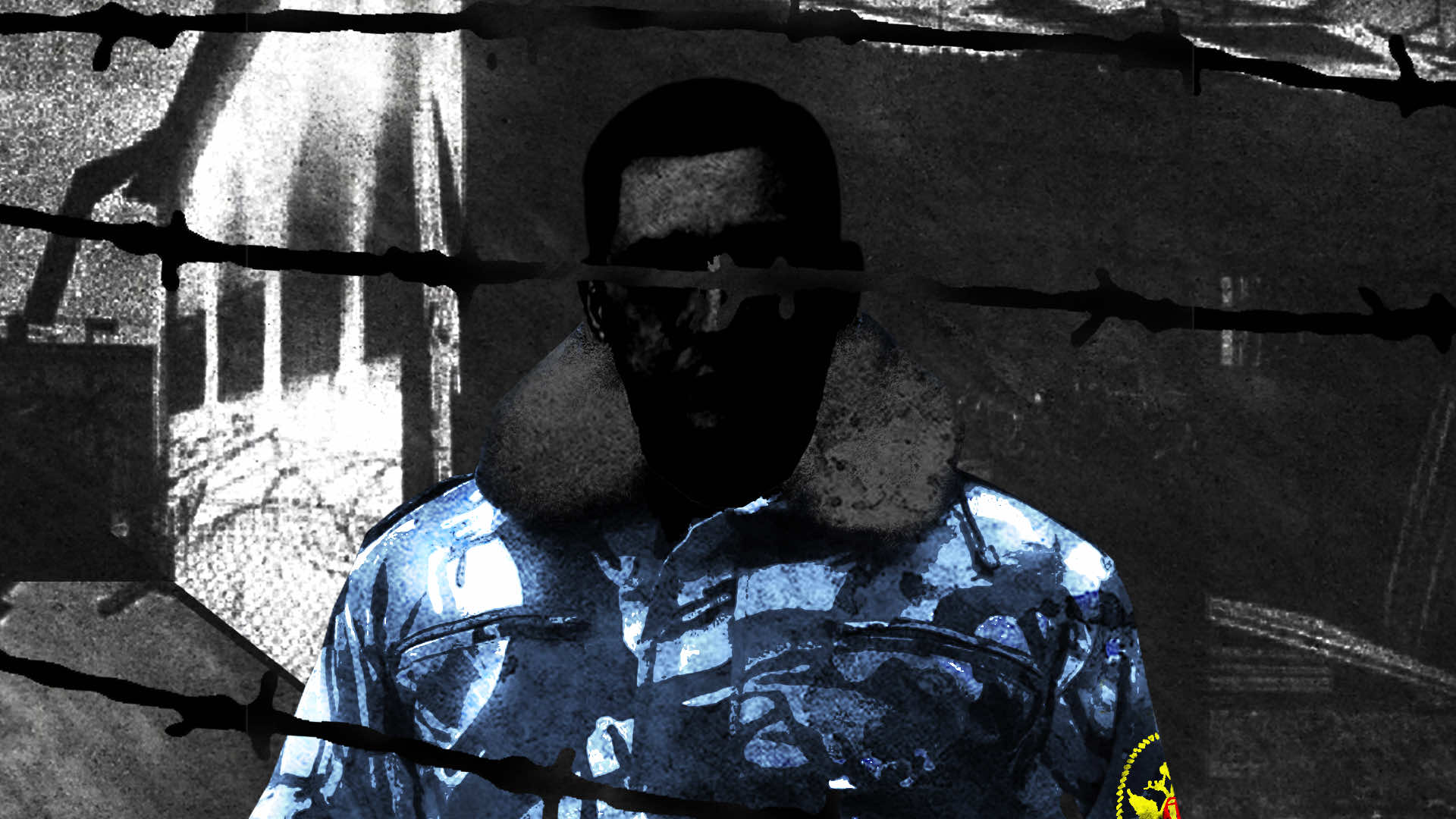
Media: Austria backs EU sanctions package after Raiffeisen suspended from war sponsor list
Austria supported the EU's 12th sanction package against Russia after Ukraine suspended the inclusion of the Raiffeisen Bank in the war sponsors list, Reuters reported on Dec. 16, citing an EU diplomat.
Media reports emerged ahead of the Dec. 14-15 European Council summit that Vienna is delaying the newest package in an effort to remove the Austrian Raiffeisen Bank International (RBI) from Kyiv's blacklist.
Even though EU countries publicly announced the 12th package during the summit, EUObserver wrote that Austria continues to hold out on account of the RBI.
The website of Ukraine's National Agency on Corruption Prevention (NAZK) now reads that the inclusion of the RBI in the international sponsors of war list is "suspended for the period of bilateral consultations involving representatives of the European Commission."
"Austria has now lifted its reserve. Sanctions (against Russia) should now be formally adopted this coming week," Radio Free Europe/Radio Liberty journalist Rikard Jozwiak reported.
Despite the full-scale invasion of Ukraine in February 2022, the RBI, Austria's second-largest bank lender, has continued to operate in Russia.
The bank has long-standing ties with Russia and is only one of only two foreign banks classified as "systemically important" by the Russian central bank.
Czechia opened an investigation of the RBI in August over its ongoing business activities in Russia after the Czech Association for the Rights of Citizens and Entrepreneurs highlighted that Raiffeisen's Russia-based companies had paid up to $720 million from their profits to the Russian state budget in taxes.
The European Central Bank (ECB) urged Raiffeisen on March 24 to devise an exit strategy for selling or shutting down the group's Russia branch of operations.
The bank responded to the criticism by saying that it is reducing its business activity in the country, minimizing "the RBI Group's cross-border exposure to Russia," and exploring ways of selling or spinning off its Russian branch, but no further updates have been provided.


